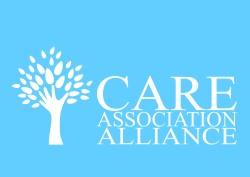Government sets out next steps for living with COVID
New guidance outlines free COVID-19 tests will continue to be available to help protect specific groups once free testing for the general public ends on 1 April
Living with covid…
The government’s high level plans for “living with covid” for adult social care were published on 29th March. Full updated guidance for adult social care is due imminently, but some highlights are available in the following link: Government sets out next steps for living with COVID – GOV.UK (www.gov.uk)
The information that relates directly to adult social care is summarised below:
Self-isolation if covid positive
From 1 April, updated guidance government will advise people with symptoms of a respiratory infection, including COVID-19, and a high temperature or who feel unwell, to try stay at home and avoid contact with other people, until they feel well enough to resume normal activities and they no longer have a high temperature. Until 1 April individuals should continue to follow the current guidance.
From 1 April, anyone with a positive COVID-19 test result will be advised to try to stay at home and avoid contact with other people for five days, which is when they are most infectious.
Testing
Free symptomatic testing will be provided for:
People living or working in some high-risk settings. For example, staff in adult social care services such as homecare organisations and care homes, and residents in care homes and extra care and supported living services, where infection needs to be identified quickly to minimise outbreaks.
People will also be tested before being discharged from hospital into care homes, hospices.
Asymptomatic lateral flow testing will continue from April in some high-risk settings where infection can spread rapidly while prevalence is high.
This includes staff in hospices and adult social care services, such as homecare organisations and care homes, a small number of care home visitors who provide personal care, staff in high risk domestic abuse refuges and homelessness settings.
In addition, testing will be provided for residential care home staff and residents during an outbreak and for care home residents upon admission
Most visitors to adult social care settings, and visitors to the NHS, will no longer be required to take a test. More guidance on what people should do when visiting adult social care settings will be published by 1 April.
Other key changes:
A number of changes and new guidance is also being confirmed today for adult social care including:
- From 1 April, those working in adult social care services will also continue to receive free personal protective equipment (PPE). Priority vaccinations and boosters for residents and staff will also continue
- Updated hospital discharge guidance will be published setting out how all involved in health and social care will work together to ensure smooth discharges from hospital and people receive the right care at the right time in the right place
- Designated settings will be removed. These were initially set up to provide a period of isolation to COVID-19 positive patients before they move into care homes and before routine point of care testing for COVID-19 was available. Restrictions on staff movement will also be removed
- Streamlined guidance on infection and prevention control measures will be published to set out long-standing principles on good practice, and support consistency across the adult social care sector. This will include details on future measures for COVID-19 and other respiratory viruses to ensure providers have the latest information on best practice which will include information on admissions, visiting and PPE
- Updated guidance for adult social care providers and staff to set out the current testing regime across adult social care
- Outbreak management periods in care homes, which can include visiting restrictions, have been reduced from 14 to 10 days
- People aged 75 and over, residents in care homes for elderly adults and those who are immunosuppressed are now eligible to receive a Spring booster jab to top up their immunity to COVID-19.
The cost of these changes will be met within existing funding arrangements.
We have already flagged concerns about the lack of funding to support some key measures, most importantly paying people to stay at home if covid positive. The messaging on this remains “mixed” with the advice being to “try to stay home and avoid contact with people for 5 days”.
We will continue conversations with SCC and CCG partners in Surrey to try to get as much support as possible for SCA members around the transition to “living with covid”.
Thanks to the Surrey Care Association for this document.
E&OE.

